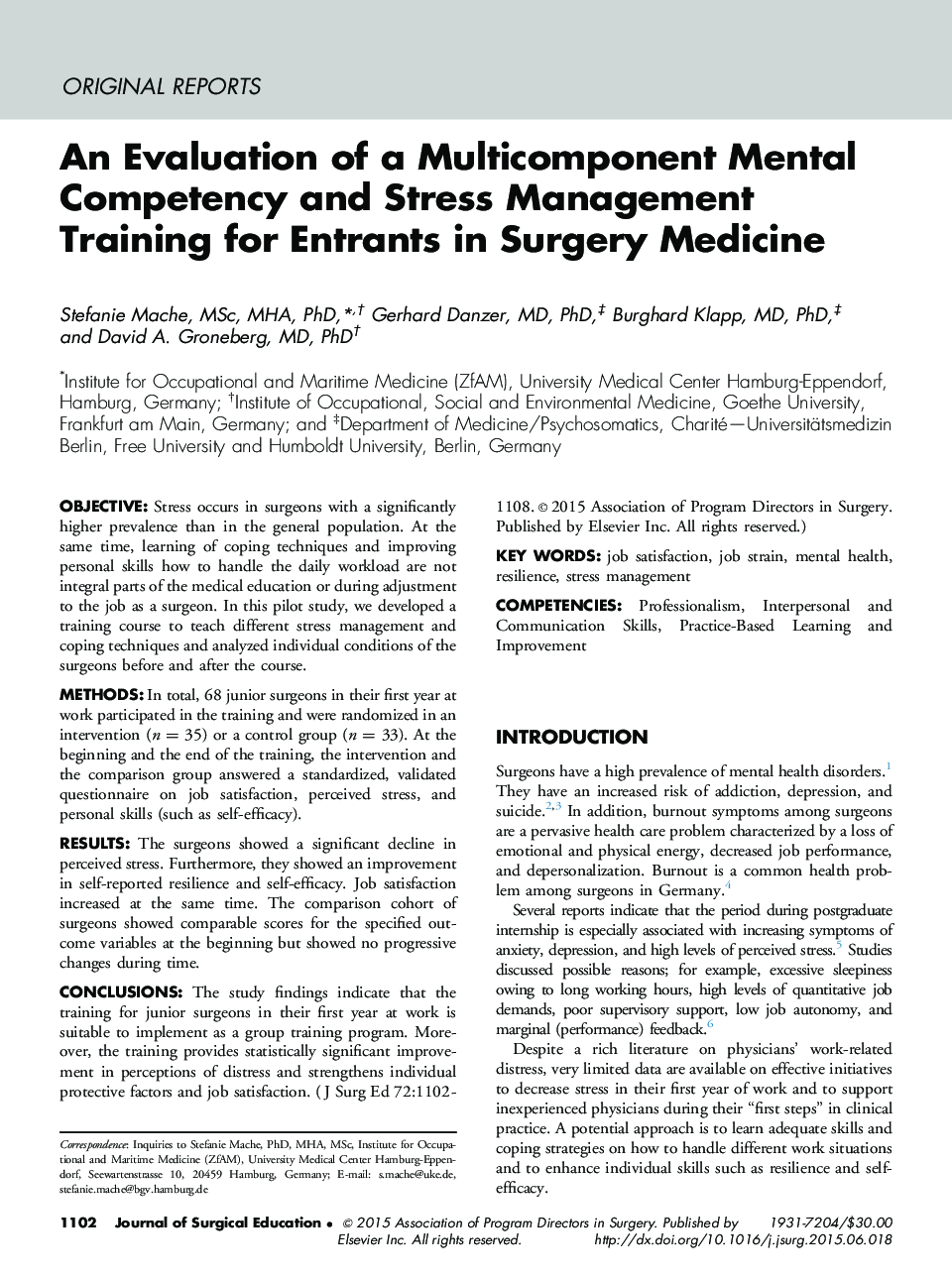| Article ID | Journal | Published Year | Pages | File Type |
|---|---|---|---|---|
| 4297478 | Journal of Surgical Education | 2015 | 7 Pages |
ObjectiveStress occurs in surgeons with a significantly higher prevalence than in the general population. At the same time, learning of coping techniques and improving personal skills how to handle the daily workload are not integral parts of the medical education or during adjustment to the job as a surgeon. In this pilot study, we developed a training course to teach different stress management and coping techniques and analyzed individual conditions of the surgeons before and after the course.MethodsIn total, 68 junior surgeons in their first year at work participated in the training and were randomized in an intervention (n = 35) or a control group (n = 33). At the beginning and the end of the training, the intervention and the comparison group answered a standardized, validated questionnaire on job satisfaction, perceived stress, and personal skills (such as self-efficacy).ResultsThe surgeons showed a significant decline in perceived stress. Furthermore, they showed an improvement in self-reported resilience and self-efficacy. Job satisfaction increased at the same time. The comparison cohort of surgeons showed comparable scores for the specified outcome variables at the beginning but showed no progressive changes during time.ConclusionsThe study findings indicate that the training for junior surgeons in their first year at work is suitable to implement as a group training program. Moreover, the training provides statistically significant improvement in perceptions of distress and strengthens individual protective factors and job satisfaction.
